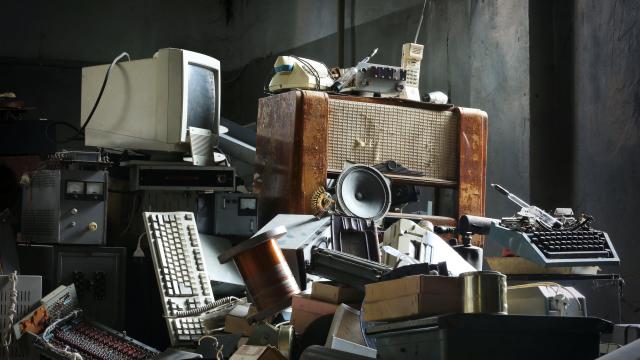As much as some companies like Google are willing to let their cloud-based game services like Stadia perish on the vine, groups working to preserve digital information are only growing more sophisticated. On Monday, the nonprofit Internet Archive said they’re working with a grant to create a monster library of amateur audio broadcasts and early digital publications.
In a nonprofit’s blog post announcing the initiative, The Internet Archive said this Digital Library of Amateur Radio and Communications, even though its name is a real mouthful and is centered on the history of early ham radio, it will also contain digitised print copies as well as digital-first material populated on the early internet. That will include old digital photos, websites, videos, podcasts, and more, according to the announcement.
Kay Savetz, a tech historian and lead on the Archive’s new project, told Gizmodo in a phone interview that he has the flexibility to include practically any digital communication from the early days of computing in the 1970s up through the ‘90s. This could include old videos posted to YouTube or digital newsletters that are no longer available. He said early podcasts that were once available but have since been lost to time by servers or hosts going defunct are especially of interest to the archival project.
The archivist said that in terms of the internet, people created code for their servers and clients but as so often happens, old websites get forgotten or become obsolete. Their focus is on preservation, and he said they even have the capability to play some old defunct Flash animations using the emulator called Ruffle to regain some of the old lost content from the days of Newgrounds and other early content hosting sites.
“With stuff like video games, businesses, in particular, their job is to create content as quickly as possible, push it out there,” Savetz said. “They’re not thinking of preservation, and they don’t really care if it disappears off the app store 10 years from now.”
The project is being funded by the Amateur Radio Digital Communication foundation, and Savetz said they want to try and preserve material from early ham radio operators, pirate radio operators, and more. It’s especially interested in content from early initiatives headed by women, people of colour, or other marginalised groups. The campaign also includes efforts to preserve broadcasts from the broader amateur radio community, and the project heads mention they want to conduct oral history interviews with “key members” of the amateur radio scene.
“I want the obscure stuff, the locally-produced ham radio newsletters or the smaller magazines, that sort of thing,” the archivist said.
The Internet Archive already stores a massive amount of both modern and past internet on its servers. In an interview with the Financial Times released on Monday, Internet Archive founder Brewster Kahle said all their platforms contain more than 100 petabytes of data, equivalent to 100,000 terabytes. Much of it is stored in a former church located in San Francisco.
As far as curation is concerned, Savetz said anyone can upload anything to the Internet Archive, and most content gets in “within reason.” He said he has a wide berth for what goes into this new project, especially if it concerns amateur radio whether it’s new or historical.
The Internet Archive’s services like the Wayback Machine, which contains billions of archived web pages, have proved to be important tools for researchers, journalists, or regular internet sleuths. IA’s OpenLibrary platform also provides users access to free ebook lending, though some of the biggest publishing companies like Hachette Book Group and Penguin Random House have sued the platform, arguing that it hurts their revenue. Last week, hundreds of authors including the likes of The Sandman writer Neil Gaiman signed an open letter arguing the “big five” publishers need to update their services to allow libraries to lend more ebooks.
If you want to help with this project, you can find more information on the process here.
Additional reading:
